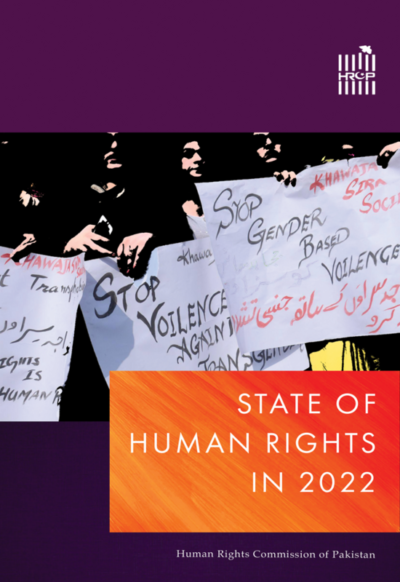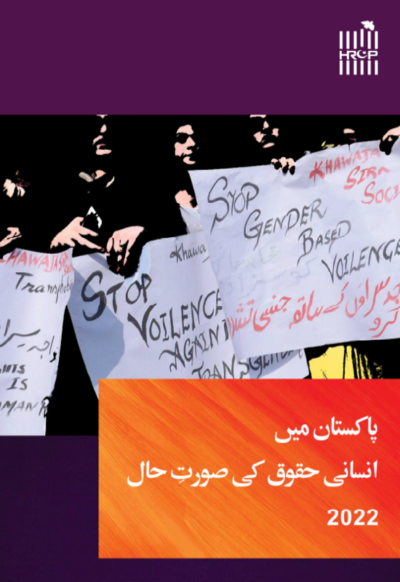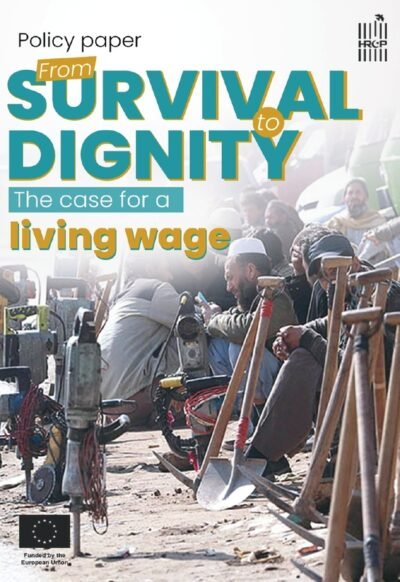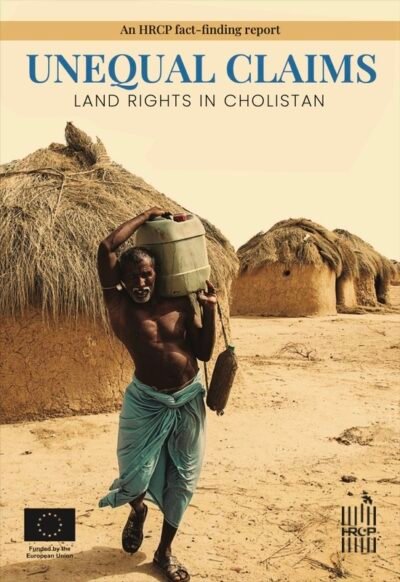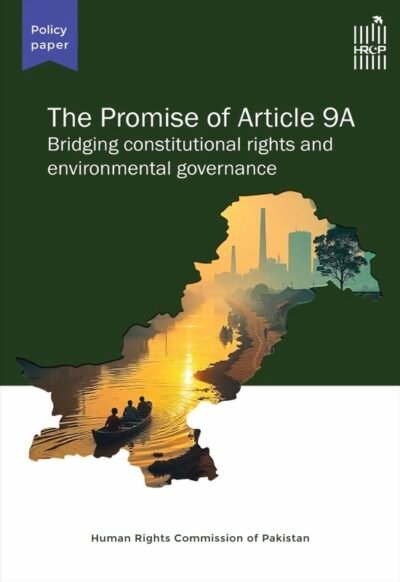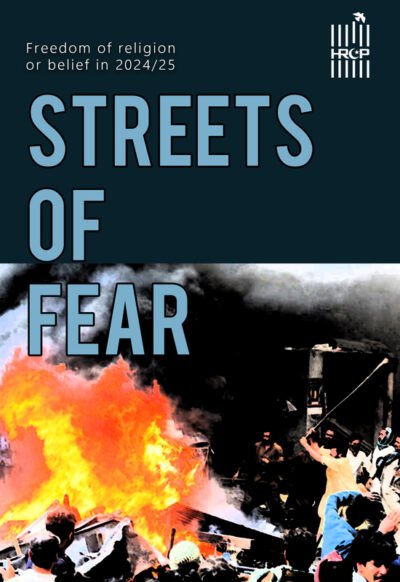It would not be incorrect to say that things came to a head in many ways for Pakistan in 2022. The year began with a sense of control and preparedness about the Covid-19 pandemic, even though there were hundreds of thousands of new cases across the country.
Unfortunately, the political and economic scenario was not as optimistic. As the governments tried to negotiate kinder deals with international lenders, the economy took a nosedive. Inflationary pressure made ordinary people’s lives more difficult; businesses were stalled, leading to unemployment and poverty.
It was a year of political unrest and instability, exposing the fragile moorings of our democratic system like never before. The legislature and executive struggled with a crisis of credibility, and the judicial overreach, instead of solving the ensuing constitutional and political crises, only made matters worse. Draconian colonial-era laws continued to be used, as generously as before, against political opponents throughout the year. Moreover, people’s rights to privacy and dignity were violated in the form of audio and video leaks, with no one taking the necessary steps to fix responsibility for undertaking this illegal invasion of privacy and seeking accountability from those found responsible for such acts.
Resurgence of terrorism and the fact that the year witnessed the highest number of terrorist attacks in five years is of serious concern.
It was indeed the most inopportune time for the climate-change induced catastrophic floods to strike all four provinces of the country as well as Gilgit-Baltistan in July, with devastating consequences for individual lives, livelihoods, agricultural land and houses, education and health. These losses overburdened the reeling economy in the last six months of the year.
The Human Rights Commission of Pakistan (HRCP) was particularly concerned about the threatened reversal of transgender rights during the year. The progressive federal act of 2018, which was a result of a year-long consultative process, was made unduly controversial in and outside the courts and legislature. Meanwhile, over 19 transgender persons were murdered and hundreds faced violence. Thus, the State of Human Rights in 2022 addresses this as the key theme of the year.
As with preceding reports, this report delves into a wide spectrum of human rights violations. Following last year’s pattern, this year’s report comprises separate chapters on the federating units, Islamabad Capital Territory, and the administrative units of Azad Jammu and Kashmir and Gilgit-Baltistan.
HRCP was happy to note that, despite political upheavals, some progressive legislation was put into effect, both in the federal parliament and the provincial assemblies. These include laws against workplace harassment, torture and custodial deaths, decriminalising suicide at the federal level, and laws for raising minimum wages, enhancing punishment for crimes against children, providing universal healthcare, restoring student unions, regularising katchi abadis, setting up and empoering provincial human rights and women rights commissions, and providing for the welfare of senior citizens at the provincial level. We are also pleased with the Supreme Court ruling in March that the Constitution does not disown Ahmadis as citizens or deprive them of their fundamental rights, and welcome the appointment of Justice Ayesha Malik as the first female judge of the Supreme Court.
Yet, other depressing developments and human rights violations far outweigh these gains. We are concerned that despite being functional theoretically, both the National Commission for Human Rights (NCHR) and the National Commission on the Status of Women are waiting to be provided resources for an efficient running.
Although local government elections were held in three of the provinces, these were obligated on the orders of the superior courts. It was evident from the failure to adequately furnish the local governments with resources and authority that the political elements of the state lacked the commitment to facilitate the established of a fully functional local government system. Participants of a national conference on the subject organized by HRCP strongly argued for a comprehensive local government scheme, defining its role and functions, through an amendment in Constitution.
HRCP was alarmed by a decision of the Government of Punjab to incorporate a mandatory declaration of belief in the finality of prophethood and fears that such unnecessary intrusion of the state in personal matters of Muslims will fan more extremist views.
There was no respite from cases of enforced disappearances which saw an uptick in Balochistan and elsewhere following a suicide bombing in Karachi in April. The law that criminalises enforced disappearances still faces unnecessary procedural delays. The report notes with concern that freedom of expression as well as freedom of movement and assembly remained compromised throughout the year. Cases of blasphemy, mob lynchings, forced conversions, desecration of Ahmadiyya places of worship, discrimination and persecution of minorities continued during the year. Women became victims of honour crimes, rape, domestic violence and acid attacks, in addition to experiencing discrimination and marginalization in the political, social and economic spheres.
The report also notes the human rights violations of children, labourers, persons living with disabilities, refugees and internally displaced persons and regrets that the prevailing social and economic conditions enhance their vulnerability to neglect, abuse and exploitation.
Despite the challenging conditions, HRCP’s nine offices across Pakistan and governing Council actively worked in the field, and stayed engaged in advocacy and lobbying work. Apart from several reactive fact-finding missions, three thematic fact-finding missions were conducted in South Punjab, Gilgit-Baltistan and Balochistan during the year. More than a hundred mobilisation, outreach, advocacy and policy meetings, and seminars were held, and 25 publications released. Three national conferences on electoral reforms, local governments and access to citizenship rights for itinerant workers were organised. The I. A. Rehman Research Grant was granted this year to lawyer Usama Khawar. HRCP was pleased to award a certificate of merit to human rights activist Salahuddin Siddiqui from Sindh for his tireless work in the flood affected areas. We also set up a legislation watch cell and released its first report on federal budget allocations to the NCHR. Our complaints desks functioned effectively at all regional offices.
HRCP was deeply grieved by the loss of its Council member Akhtar Baloch this year. A highly respected journalist and progressive activist, Mr Baloch served as the Sindh coordinator for HRCP’s network of core human rights defenders, leaving behind a legacy of dedication and commitment that will be remembered.
In the end, I would like to acknowledge the effort put into compiling this report by our contributors, including Mehlab Jameel, Council member Farhatullah Babar, Dr Mahvish Ahmad, Akbar Notezai, Muhammad Badar Alam, Alefia T Hussain, Israruddin Israr, Jalaluddin Mughal, Shujauddin Qureshi, Zebunnisa Burki and Bilal Abbas. Special thanks are owed to Maheen Pracha, Maheen Rasheed, Ali Haider, Zarnaab Adil Janjua, Aymen Fatima and Adeel Ahmed who assisted in conceptualising and editing the report with the Director Farah Zia. I am grateful to the Secretary-General Harris Khalique for his constant and valuable guidance in preparing the report.
HRCP deeply appreciates the work of all human rights defenders who continue fearlessly to struggle for the realisation of human rights for all within Pakistan and globally. On its part, HRCP too remains committed to the promotion and protection human rights for all without any distinction or discrimination on grounds of gender, race, religion, sect or belief, ethnicity, area of origin, disability, sexual orientation, or socioeconomic status. We will continue to struggle for a more equitable, and just world in the years to come.


